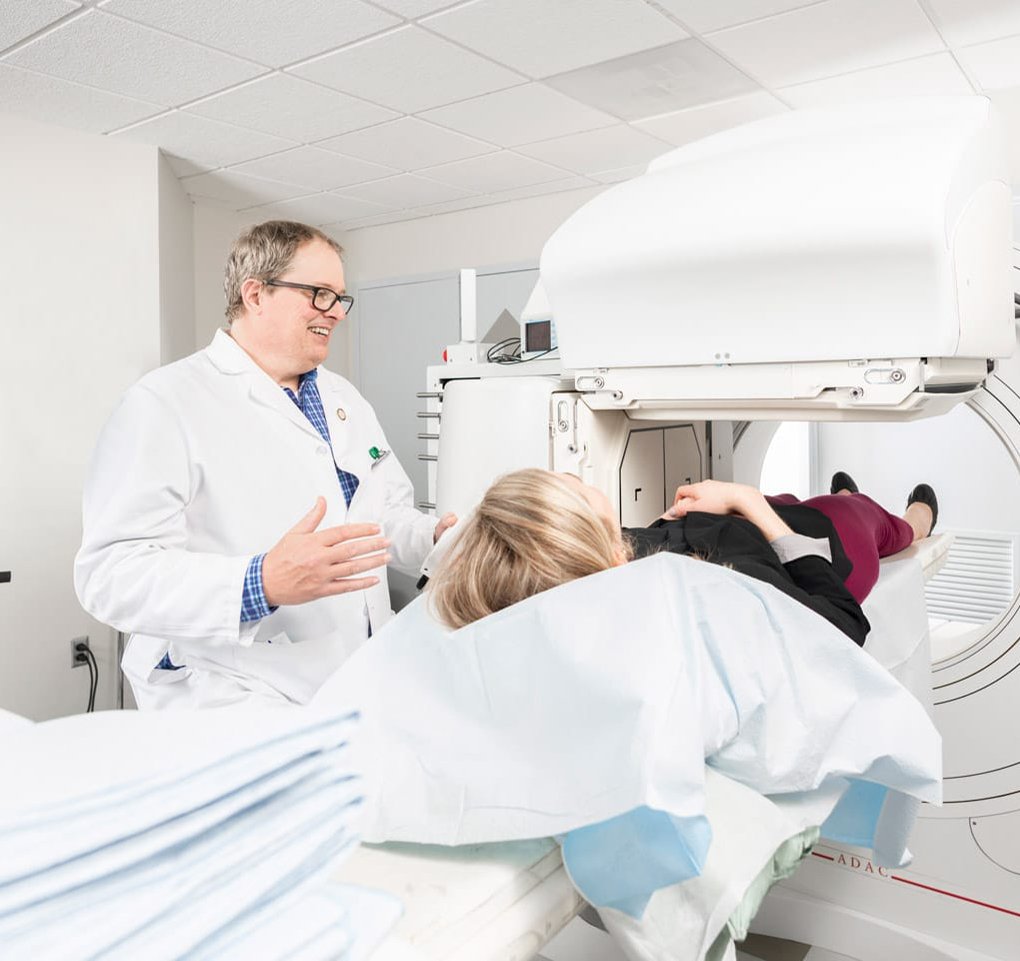Cardiovascular Risk Assessments
Your heart health is incredibly important to your long-term quality of life, and assessing your risk of heart disease is an important first step in preventing heart attacks, heart failure, arrhythmias, and stroke. At CardioCare, we proudly offer comprehensive cardiac risk assessments. They will evaluate your immediate risk of developing coronary heart disease and create a personalized plan to reduce your future cardiovascular disease risk.
What Is a Cardiovascular Risk Assessment?
A cardiovascular risk assessment is a comprehensive evaluation that identifies your risk factors for developing heart disease. It’s an essential tool for proactive heart health and can help you and your doctor make informed decisions about preventing or managing heart disease.
Why Is a Cardiovascular Risk Assessment Important?
Early detection and management of heart disease risk factors are key to preventing a heart attack, stroke, or other cardiovascular events. A risk assessment allows you to:
- Understand your risk: Identify your individual risk for developing heart disease.
- Make lifestyle changes: Make informed lifestyle changes to reduce your risk factors.
- Develop a personalized treatment plan: Work with your doctor to create a customized treatment plan to manage your existing risk factors.
What Factors Does a Cardiovascular Risk Assessment Consider?
Cardiovascular risk assessments typically consider many factors. If you have any of the following, you may benefit from a screening visit:
- Age: 40 years old or older with a family history of cardiovascular disease.
- Family history: A family history of heart disease increases your risk.
- High blood pressure: This is a major risk factor for developing heart disease.
- High cholesterol: High total cholesterol, particularly LDL (bad) cholesterol, increases your risk for heart disease.
- Smoking history: Smoking significantly increases your risk for heart disease.
- Diabetes: Diabetes is strongly linked to heart disease.
- Physical activity: A lack of regular physical activity increases your risk for heart disease.
- Diet: A diet high in saturated and trans fats, cholesterol, and sodium can increase your risk.
- Overweight/obesity: Being overweight or obese can put you at increased risk for cardiac disease.
What to Expect During Your Cardiovascular Risk Assessment
The field of cardiology has made remarkable advances in developing tests that allow us to accurately assess your risk of cardiovascular disease. There are several tools available to help you understand your risk of developing heart disease. We’ve outlined some of the more commonly used tools here:
- ASCVD Risk Calculator: This tool estimates your 10-year or lifetime risk of atherosclerotic cardiovascular disease (ASCVD), which is your risk of having plaque build up in your arteries and increasing your risk of heart attack or stroke.
- Predicting Risk of Cardiovascular Disease Events (PREVENT) Calculator: This newer tool considers additional health conditions to estimate the 10- and 30-year risk of heart attack, stroke, and heart failure for ages 30 to 79.
During your appointment, our cardiologists will work with you to assess your risk and determine which of these tests will best evaluate your risk and inform your prevention plan.
These tests may include:
- Lab tests for cholesterol, lipoprotein A, ApoB, diabetes, and systemic inflammation (i.e. high-sensitivity CRP)
- EKGs
- Stress tests
- CT scans to assess coronary artery calcification
- Carotid ultrasounds, aortic ultrasounds, and peripheral artery ultrasounds
This thorough assessment helps create a personalized plan that may include lifestyle changes, medication adjustments, or additional testing to manage your risk factors.

How to Prepare for a Cardiovascular Risk Assessment
Preparing for your cardiovascular risk assessment is simple and can help you get the most out of your appointment. Here are a few things you can do to make the process smoother:
- Gather your medical information: Bring a list of all your medications, including over-the-counter drugs, vitamins, and supplements. Also, have a record of any past medical conditions, surgeries, or family history of heart disease.
- Track your symptoms: If you have any symptoms related to heart health, such as chest pain, shortness of breath, dizziness, or unusual fatigue, try to track the frequency, severity, and duration of these symptoms. This information will be helpful to share with your doctor.
- Consider a diet and exercise log: If you’re concerned about your diet or exercise habits, it can be helpful to keep a log of your typical food intake and activity levels for a few days before your appointment. This will provide a clearer picture of your current lifestyle and help your doctor tailor recommendations.
We encourage you to follow these simple tips so you’ll be well-prepared for your cardiovascular risk assessment. This also ensures that you get the most out of your appointment with your doctor.
What Your Risk Assessment Results Can Tell
Your heart disease risk is based on how your answers compare to people in medical studies. A lower percentage means less risk, while a higher percentage means greater risk. If your risk is high, your doctor might suggest changes to your lifestyle or medications to help protect your heart. Here are several things you can do to lower your risk:
- Eat healthy
- Exercise regularly
- Limit alcohol and smoking
- Manage stress and conditions like diabetes, high blood pressure, or high cholesterol
Why Choose Cardiocare for Cardiac Risk Assessment Services?
At CardioCare, we’re committed to providing personalized, expert care, backed by over 15 years of experience, to help you feel informed and comfortable throughout the process. Here’s why you should choose us for your cardiovascular risk assessment:
- Experienced cardiologists: Our team of board-certified cardiologists has extensive experience in assessing cardiovascular risk and creating personalized treatment plans.
- State-of-the-art technology: We utilize the latest technology to guarantee accurate and reliable assessments.
- Clear communication: We take the time to explain your results and discuss your options clearly and understandably. If you have any questions, just ask!
- Convenient location: We offer convenient appointments at our offices in DC and Maryland.
Trust CardioCare and be confident that you will feel informed, cared for, and empowered to take control of your heart health!


Cardiovascular Risk Assessment Reviews
Your score is a percentage that represents your likelihood of developing cardiovascular disease in the next 10 years. For instance, a score of 25% means you have a 25 in 100 chance, or a 1 in 4 chance, of developing the condition.
If your score is low, that’s great news! However, it’s still important to maintain a healthy lifestyle to continue managing your risk factors and protect your heart health. Even people at low risk can benefit from healthy habits like a balanced diet, regular exercise, and avoiding smoking.